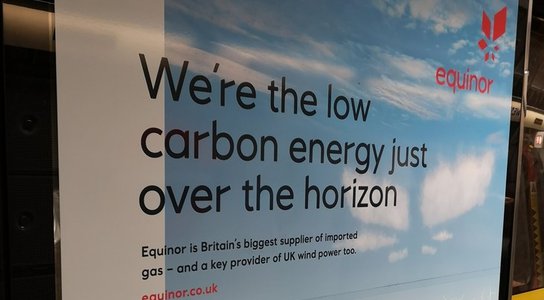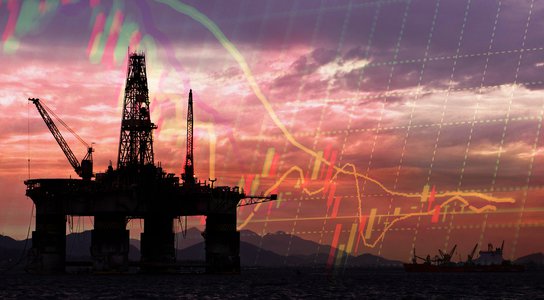Tomorrow, MEPs will be questioning the man tasked with delivering the European Green Deal - the centrepiece of the political agenda of the new European Commission - on how it intends to make Europe the first climate-neutral continent.
The nominee for Vice President of the Commission, Frans Timmermans, will no doubt lay out some important and commendable proposals – a net zero target, a just transition, protecting biodiversity. But if he is to be serious about policies that deliver a net zero future, he also needs to bring proposals to end the EU’s support for gas.
Tackling climate change means getting off gas
The gas industry is keen to promote gas as a clean fuel that can play a crucial part in tackling climate change, pitching it as the ‘ideal partner’ to run alongside wind and solar power. The reality is that tackling climate change means shifting off fossil fuels; there is no place for relying on gas if the world is to avoid climate breakdown.
Our analysis of the latest climate science shows that global gas consumption needs to fall 40% in the next decade if the world is to limit warming to the relative safety of 1.5°C above pre-industrial levels. In addition, richer diversified economies like the EU should be cutting emissions even faster to reduce the burden on poorer countries, in line with the principles of the Paris climate agreement.
It’s not just the carbon emissions from burning gas that are wrecking the climate. Methane, the main part of natural gas, is a greenhouse gas 86 times more potent than carbon dioxide over a 20 year period. More than a quarter of global warming to date has been driven by methane, with a third of human-caused methane emissions coming from the fossil fuel industry – which leaks it into the atmosphere at almost every step in the supply chain.
EU still backing gas
Yet the EU currently supports significant expansion of gas infrastructure in Europe through its ‘Projects of Common Interest’ (PCIs). PCIs are international energy infrastructure projects that the EU deems to be in the ‘Common Interest’ of its Member States, and as such receive significant benefits. They get fast-tracked approval, are treated as ‘necessary’ for the process of permitting and ‘of overriding public interest’ in environmental impact assessments. This status makes them nearly unstoppable, never mind the impacts on local communities or the environment.
These projects also become eligible for EU subsidies - €1.5bn has already been allocated to gas PCI projects through the EU budget. The European Investment Bank also perceives PCIs as a high priority, for example providing €2.8bn to PCI projects in the Southern Gas Corridor – a vast complex of pipelines stretching from Azerbaijan to Italy.
In total, the proposed gas infrastructure in the EU’s PCIs is worth €45bn, largely new pipelines and terminals for importing liquefied natural gas (LNG) – a compressed form of gas that can shipped in huge tankers. EU support for these infrastructure projects facilitates the construction of otherwise commercially unviable projects, and is likely to make it easier for these projects to access private sector finance.
Locked in
The construction of more gas pipelines and terminals would lock Europe into a long-term reliance on fossil fuels. An LNG terminal approved today would still be operating in 2050 and could keep running into the 2060s – well after Europe needs to have completely decarbonised. Due to the high upfront investment costs in building pipelines and terminals, it is in the operator’s interest to keep it running as long as possible to try to recover those costs. The IPCC’s latest report highlighted this risk of “the economic and institutional lock-in into carbon-intensive infrastructure, that is, the continued investment in and use of carbon-intensive technologies that are difficult or costly to phase-out once deployed”.
Gas doesn’t make financial sense either; unsubsidised wind and utility-scale solar power are already cheaper or at a comparable cost to gas-fired power. Over the next decade, batteries are set to become cheaper than gas-fired power as a source of backup power to renewables. Building more gas infrastructure now would crowd out these cheaper, cleaner technologies.
Gas companies in charge of gas policy
So why, when the EU has committed to reduce greenhouse gas emissions by 80-95% by 2050 and is aiming to increase this to a net-zero target as part of the European Green Deal, is it still expanding infrastructure for climate-wrecking gas?
One of the biggest reasons why the EU is expanding gas infrastructure is because it has handed responsibility for gas policy to the gas industry. The EU regulation governing PCI projects gives responsibility for assessing future gas demand and reviewing proposed projects to a body made up of gas companies. Unsurprisingly this industry body has consistently over-estimated future gas demand, to the direct benefit of its member companies that proposed 75% of the last round of gas PCI projects.
Even where the gas industry isn’t directly in charge of European gas policy, the industry still has huge influence. In 2016 alone, the gas industry spent €100 million deploying an army of over a thousand lobbyists to influence the EU institutions.
No future for fossil fuels
The Green New Deal for Europe is a huge opportunity to ensure that policy across the EU is set to deliver on its climate ambitions, avoid climate breakdown, and deliver a cleaner, safer and fairer society for the people of Europe. Yet this future cannot be achieved while the EU continues to back climate-wrecking gas projects.
To truly deliver on the ambitions of the European Green Deal, it should include an end to support for gas infrastructure. Gas projects should no longer be eligible for EU support as PCIs and they should no longer be eligible to receive EU funding. Responsibility for assessing the need for energy infrastructure in Europe should be held by a public body and not delegated to the energy industry.
Tomorrow, we hope Commission Vice President-nominee Timmermans commits to back a truly green future, a future beyond fossil fuels.
Preview image credit: Flickr / david takes photos


